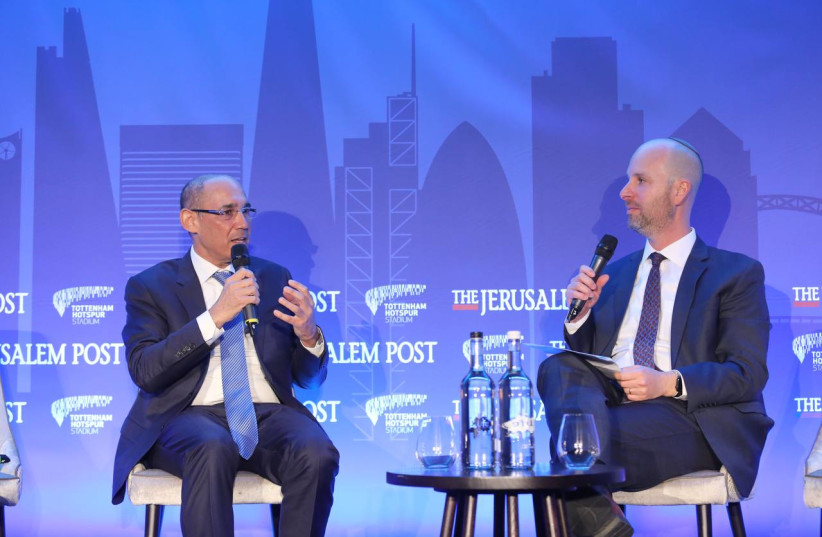Bank of Israel Governor Prof. Amir Yaron shared insights on the Israeli economy as it stands following the pandemic and beginning 2022, at the Jerusalem Post London Conference on Thursday.
Yaron began by addressing the current status of the Israeli economy, applauding the nation’s ability to bounce back from the pandemic.
“I think by every parameter, Israel’s economy has shown great resilience. It shows dynamism,” he said. “Last year we grew by 8.2%. Even during COVID, we contracted 2.2%, which is one of the lowest contractions. Cumulatively, we’ve done very, very well throughout these two years.”
For more panels and interviews from The Jerusalem Post London Conference, click here >>
He explained that Israel’s hi-tech sector has been Israel’s saving grace, acting as a buoy against the challenges presented by COVID.
“Everybody understands Israel has the Iron Dome. The hi-tech sector has been our economic Iron Dome.”

Yaron also elaborated on Israel’s position in the wake of the war in Ukraine. Israel, he believes, has the potential to hold strong and resist the global trend toward inflation.
“Inflation is going up everywhere, but in Israel, inflation is three-and-a-half percent right now – only slightly above the Bank of Israel’s upper limit. Israel’s inflation is in the bottom 10% of inflation among the OECD. So it’s significantly less,” he said.
He went on to explain that Israel’s natural gas surplus is a potential boon to the country’s economy given the geopolitical tension surrounding oil, but some steps must be taken before Israel can fully reap the benefits of its supply.
“Energy ties among our region are very valuable. We all have to understand that for Israel to export, we need to liquefy gas. That will take investments in Egypt, et cetera. It’s very important for us to have further ties with the surrounding nations to work hard on renewable energy.”
Israel’s interest rate is expected to rise in the coming month. Yaron granted more perspective on the context surrounding that decision.
“We were one of the first countries to actually tighten our very expansive monetary policy during the pandemic,” he said. “What we signaled in our last interest rate meeting is that conditions are ripe for a process of raising interest rates.”
Speaking in regard to the national budget, Yaron explained what the Bank of Israel views as critical interests.
“We need to invest, in the long run, in education, infrastructure and also digitization of infrastructure to the periphery. Those are the key issues the Bank of Israel has put emphasis on, and those have to take place in the budget,” he said.
“Education is key for mobility for the Arab sector. For the ultra-Orthodox to join the labor force, we need to endow them with skill,” he said. “Education is the biggest equalizer, and here it’s a win-win situation, as those segments of society will benefit. We want them to [join the labor force], because it’s essential for the economy.”
